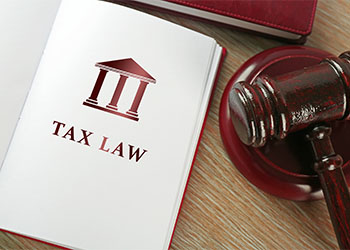Tax Issues: Which Chapter to Choose
March 20, 2023
 It is true that the majority of taxes cannot be eliminated by filing for bankruptcy. However, some can. There are several tax issues that you may encounter in your life—filing for bankruptcy may help resolve them. It is critical that you identify those issues early on so you can address them in an efficient manner.
It is true that the majority of taxes cannot be eliminated by filing for bankruptcy. However, some can. There are several tax issues that you may encounter in your life—filing for bankruptcy may help resolve them. It is critical that you identify those issues early on so you can address them in an efficient manner.
Just like people, each and every case is different. You may face a unique combination of tax issues when filing for bankruptcy, depending on which chapter you choose. If you are considering filing for bankruptcy but feel worried about potential tax issues, consider speaking with the attorney at The Law Offices of David K. Blazek, P.C.
Bankruptcy attorney David K. Blazek can examine your situation, advise you on which chapter to choose, and how to tackle the unique tax issues in your case. His Tampa, Florida law firm also serves Jacksonville, Miami, and Orlando, as well as several areas in Georgia, including Atlanta, Columbus, and Macon.
Tax Issues During a Bankruptcy Case
For most people, filing for bankruptcy may feel overwhelming, mainly because they do not know what to expect once they file and how it can affect your financial and tax situations.
Before you file for bankruptcy, you need to determine which debts are dischargeable and which ones aren’t. While you may be able to discharge most of your debts—including personal loans, credit cards, and medical debts—some may be non-dischargeable.
Some examples of non-dischargeable debts are student loans, child support, and alimony debts, as well as most federal, state, and local taxes.
Eliminating Tax Debt Through Chapter 7 Bankruptcy
Filing for bankruptcy under Chapter 7 may make more sense if your goal is to eliminate tax debts.
However, you must make sure that you are eligible to file for Chapter 7 bankruptcy. For many people, federal income taxes account for the largest portion of their tax debt. When filing for Chapter 7 bankruptcy, you can eliminate federal income taxes if the following conditions are met:
You are not accused of willful evasion or fraud
Your debt is at least three years old
You filed a tax return for the debt you want to eliminate (this must be done at least two years before the date you file for bankruptcy)
The Internal Revenue Service has assessed your income tax debt at least 240 days before your bankruptcy petition was filed (this is known as the “240-day rule”)
However, even if the conditions are met, you may be unable to eliminate your income tax debt if the IRS has put a lien on your property. In this situation, you might need to consult with an attorney to discuss your options.
Eliminating Tax Debt Through Chapter 13 Bankruptcy
In most cases, it is impossible to eliminate all tax debt through a Chapter 13 bankruptcy.
However, filing for bankruptcy under Chapter 13 may still be effective to help you manage your tax debt in several ways, including:
Taxes older than three tax years may be dischargeable and forgiven without any payment
Your dischargeable debts will not incur additional penalties and interest
You can pay what you owe to satisfy an IRS tax lien with your repayment plan
The IRS will have to abide by your repayment plan if you keep your tax returns current during the plan
However, keep in mind that non-dischargeable taxes will not be eliminated through a Chapter 13 bankruptcy. You will most likely be required to pay your non-dischargeable taxes in full during your repayment plan, which will last from three to five years.
Discharging Federal Tax Liens
Bankruptcy can discharge the debts you owe to the IRS, but it cannot do anything to federal tax liens that cover your house or land.
Thus, if the IRS recorded a tax lien on your property before you filed for bankruptcy, the lien will most likely remain intact despite your bankruptcy filing. It means that you will still be required to pay off the tax lien even if you can discharge some of your tax debts through bankruptcy.
Get Knowledgeable Help & Guidance
Everyone’s situation is different, which is why you may need to consult with an attorney to discuss your particular case. The bankruptcy attorney at The Law Offices of David K. Blazek, P.C., can provide legal guidance and help you understand your options for resolving your tax issues. Reach out to attorney Blazek’s office in Tampa, FL, today to schedule a consultation.